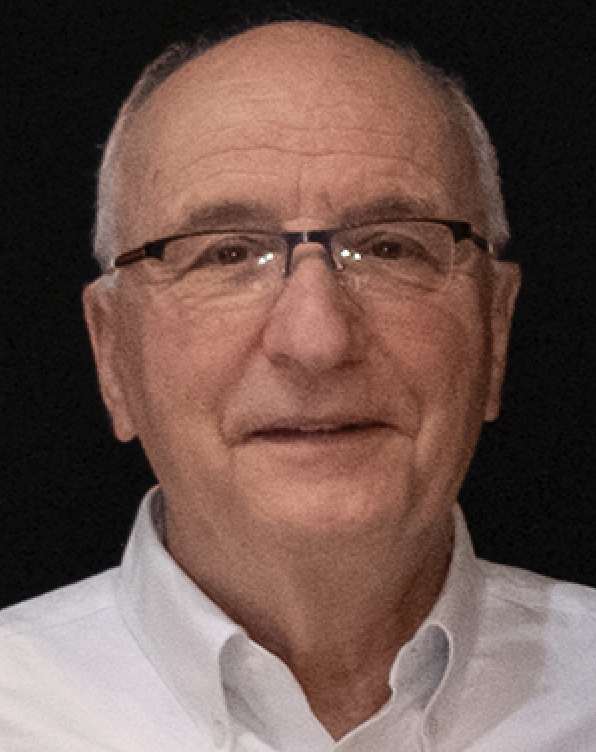
John Willinsky, Khosla Family Professor Emeritus, taught at the Stanford Graduate School of Education from 2007 to 2022, serving two years as Covid-Era Associate Dean of Students. Prior to this, he taught at universities and public schools in Canada. His research began with a focus on literacy and publishing, from young students’ book production to the formation of the Oxford English Dictionary. With the onset of the digital era, he wondered if the wider public – including teachers, physicians, policymakers, and students – might be afforded free access to research and scholarship, adding to the educational quality of democratic life. To that end, he developed open source publishing platforms for journals and researched the impact and history knowledge sharing. This championing of the right to know, on his part and that of many others, helped to make public access to research a thing at Stanford and around the globe. The research community now embraces open science; his journal publishing platform is the most widely used in the world (leading to millions of open access articles in 60 languages). Still, with barely half the research literature freely available after twenty-five years of so many people’s efforts, Willinsky rarely misses an opportunity to solicit support for this openness, as you can see, in the hope that the other half won’t take as long.
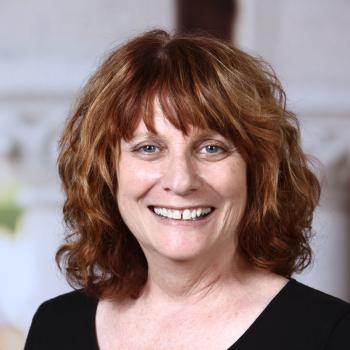
Professor Emerita Goldman is an educational anthropologist interested in learning that takes place when students are actively engaged with each other, their teachers, and others in conversations, activities, content, technologies, and problem solving. She is especially interested in how real-world contexts can drive learning, and studies how people learn in and out of school. Goldman has a special interest in the roles that families play as educators and tries to understand how they might be brought into more satisfying and productive partnerships with schools. Her work is “hand-in-hand” with educators and learners, ethnographic, design-based, and equity focused. An elementary and middle school teacher at heart, she has been part of teams that founded three innovative K-8 schools: an alternative middle school in East Harlem, NY; a school-within-a middle school in Palo Alto, CA; and a Stanford University partnership K-8 charter school in East Palo Alto, CA. Goldman’s work focuses on creating opportunities for rich STEM learning, and for understanding how design thinking and technologies can create access and be transformational. At the Stanford Graduate School of Education, she was a faculty member in the Learning Design and Technology (LDT) master’s program and the Learning Sciences & Technology Design (LSTD) doctoral programs and held a Courtesy appointment in Mechanical Engineering–Design Track. She served as Associate Dean of Faculty Affairs and as Associate Dean of Student Affairs. She publishes scholarly articles, books, curriculums, apps, media, and technologies for educators and learners. Recent work includes a co-authored book in 2022, Design Thinking for Every Classroom: A practical Guide for Educators.
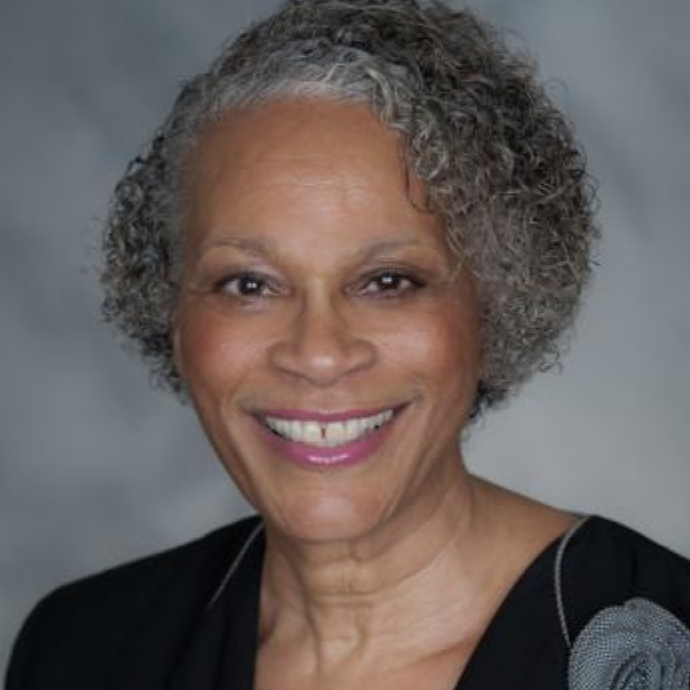
Arnetha F. Ball is the Charles E. Ducommun Endowed Professor (Emerita) in the Graduate School of Education at Stanford University. She is a Professor (Emerita) in the Curriculum Studies, Teacher Education, Educational Linguistics, and Social Sciences in Education Programs. She previously served as the inaugural Chair of the Cross Area Cross Disciplinary Program in Race, Inequality, and Language in Education (RILE) and as Director of the University’s Program in African and African American Studies. Dr. Ball served as Secretary and Vice President of the American Educational Research Association’s (AERA) Division on Teaching and Teacher Education and was the 2011-2012 President of the association. She is also a past US Representative to the World Educational Research Association.
Before entering the professorate, she taught in pre-school, elementary, and secondary classrooms for over 25 years and was the founder and Executive Director of "Children’s Creative Workshop," an early education center that specialized in providing premiere educational experiences for students from diverse backgrounds. There, she developed a professional learning community and provided professional development materials for her staff from 1974 to 1984. Her research is designed to advance transformation in teacher education programs and sociocultural theory through studies that integrate sociolinguistic, discourse analytic and ethnographic approaches to investigate ways in which semiotic systems in general, and oral and written language in particular, serve as a means for mediating teaching and learning in culturally and linguistically diverse settings. Her interdisciplinary program of research is conducted in complex learning environments that are faced with the promise and the challenges of improving education for diverse populations in three intersecting contexts: U.S. schools where predominantly poor and minoritized students are underachieving; U.S., South African and New Zealand teacher education programs that prepare teachers to teach students in culturally and linguistically complex classrooms; and community-based organizations that provide alternative education opportunities for academic and/or economic success.
Her most recent research investigates the role of generativity and successful paradigms, principles and practices in preparing teachers for diversity across national boundaries in countries that serve large numbers of historically marginalized students—including the U.S., South Africa, Australia, and New Zealand. Winner of the 2020 Miriam Roland Volunteer Service Award, 2019 Division K Legacy Award, and 2019 NCRLL Distinguished Scholar Award, Ball received the 2009 AERA Palmer O. Johnson Award and is the author/co-editor of seven books and numerous articles. She is an elected member of the National Academy of Education, Fellow of the American Educational Research Association, and has served as an Academic Specialist for the United States Information Services Program in South Africa and Distinguished Visiting Scholar in professional development programs in New Zealand and Australia. Recipient of the 2015 St. Clair Drake Teaching Award, Dr. Ball served as a trustee of the Research Foundation of the National Council of Teachers of English, Chair of the Executive Board of NCRLL, was the Inaugural Barbara A. Sizemore Distinguished Visiting Professor in Urban Education, and was the 2015 Co-convener for the World Educational Research Association’s International Research Network on Overcoming Inequalities in Schools and Learning Communities: Innovative Education for a New Century. Her recent work focuses on the development of blended online professional development that prepares teachers to work with diverse student populations and on the implementation of her Model of Generative Change (2009, 2012) in transnational contexts. She holds a B.A. and M.S. from the University of Michigan and a Ph.D. from Stanford University.
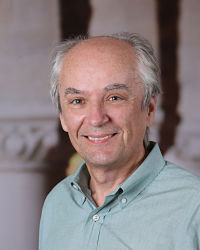
Eamonn Callan retired as Pigott Family Professor of Education and Professor of Philosophy (by courtesy) in 2018. Eamonn joined the Stanford faculty in 1999. He had previously been Professor of Education at the University of Alberta and had received his PhD there in 1982. He grew up in Ireland.
Commencement coverage:
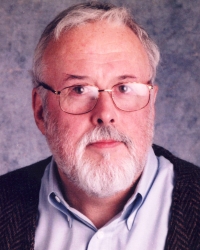
Ray McDermott is a grade school teacher turned cultural anthropologist. A Professor of Education at Stanford since 1989, in March this year, he moved to Emeritus status in order to concentrate on writing. He has been teaching from grade school to graduate school for 50 years. Before coming to Stanford, he taught at Teachers College for ten years, and did research at the Laboratory of Human Cognition at The Rockefeller University for four years. He has also held visiting positions at UC Berkeley, Yale, and the University of Tsukuba in Japan.
From the beginning, he has been alarmed that Americans do not send their children to school to learn to read and write, but to learn to read and write better than their neighbors. Competition can make life and learning fun, but not if it removes half the children from any road to success. In search of an alternative, he has been driven to show that children judged to be failures are generally in much better shape than schools can allow. He has written extensively in defense of children against the all too easy charges that they are disabled, hyperactive, slow, inarticulate, mistake prone, lazy, culturally deprived, or just plain dumb. He wonders why, as a nation, we have turned against so many of our own children by building institutions that administer more failure than success. He suggests we spend more time on what is right about our children rather than what is wrong with them, which means perhaps we should spend more time on what is wrong with us, their educational professionals.
His work has received “lifetime achievement” awards from the American Educational Research Association and the American Anthropological Association, but he has yet to dent the problems of inequality endemic to American education.
Commencement coverage
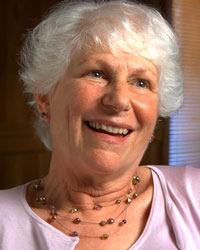
Myra Strober is a labor economist and Professor Emerita at the School of Education at Stanford University. She is also Professor of Economics at the Graduate School of Business at Stanford University (by courtesy). Myra’s research and consulting focus on gender issues at the workplace, work and family, and multidisciplinarity in higher education. She is the author of numerous articles on occupational segregation, women in the professions and management, the economics of childcare, feminist economics and the teaching of economics. Myra’s most recent book is a memoir, Sharing the Work: What My Family and Career Taught Me About Breaking Through (and Holding the Door Open for Others) 2016). She is also co-author, with Agnes Chan, of The Road Winds Uphill All the Way: Gender, Work, and Family in the United States and Japan (1999).
Myra is currently teaching a course on work and family at the Graduate School of Business.
Myra was the founding director of the Stanford Center for Research on Women (now the Michelle R. Clayman Institute for Gender Research). She was also the first chair of the National Council for Research on Women, a consortium of about 65 U.S. centers for research on women. Now the Council has more than 100 member centers. Myra was President of the International Association for Feminist Economics, and Vice President of the NOW Legal Defense and Education Fund (now Legal Momentum). She was an associate editor of Feminist Economics and a member of the Board of Trustees of Mills College.
Myra has consulted with several corporations on improved utilization of women in management and on work-family issues. She has also been an expert witness in cases involving the valuation of work in the home, sex discrimination, and sexual harassment.
At the School of Education, Myra was Director of the Joint Degree Program, a master’s program in which students receive both an MA in education and an MBA from the Graduate School of Business. She also served as the Chair of the Program in Administration and Policy Analysis, Associate Dean for Academic Affairs, and Acting Dean. Myra was on leave from Stanford for two years as the Program Officer in Higher Education at Atlantic Philanthropic Services (now Atlantic Philanthropies).
Myra holds a BS degree in industrial and labor relations from Cornell University, an MA in economics from Tufts University, and a Ph.D. in economics from MIT.
Commencement coverage
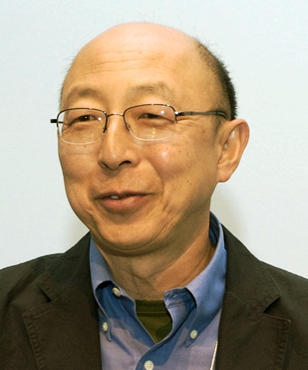
Kenji Hakuta has been a professor at Stanford University since 1989, retiring in December, 2015 as the Lee L. Jacks Professor, emeritus. He is considered an expert in matters related to the education of English Learners and bilingual children, a population that now comprises approximately one quarter of students nationally, and represents the majority in many school districts.
Kenji began his academic career in the field of “experimental psycholinguistics” – a scary-sounding technical field that maps the relationship between language and mind using theories from linguistics and research methods from experimental psychology. His academic interests and publications evolved quickly following the publication of his popular book on bilingualism in 1986 into the field of education and public policy, where he has made a mark at the levels of individual schools, school districts, states, and federal policy, and hopefully students and teachers.
Beyond academic publications, Kenji prizes his contributions to various arenas of public policy, especially to issues that affect access to educational opportunities for students who are poorly served by the system. He has organized national and local initiatives to improve bilingual education and services for language minority students, including serving on many national efforts to address the research in this area. He organized research syntheses and studies in the area of higher education that have played a role in U.S. Supreme Court decisions involving affirmative action. He served for the full term of the Clinton-Gore administration as the chair of the board on education research for the U.S. Department of Education to improve the focus and the quality of educational research. And he spent three years on leave from Stanford as the Founding Dean of the University of California at Merced to start a campus that provides access to high quality higher education for students from the Central Valley of California.
Most recently, Kenji is proud of his support of states and school districts in their implementation of the Common Core standards, in particular focusing on the demands that the policies place on the language use by students. He has worked with the Council of Chief State Schools Officers to support a collaboration of many states in the nation to provide adequate support for English Learners in their districts. He has worked with school districts in California and New York to prepare their teachers and leaders for the shift to the Common Core, especially bringing to the table the opportunities for large-scale professional development afforded to teachers through free online courses.
Kenji received his Ph.D. in Experimental Psychology from Harvard University. Before Stanford, he taught on the faculties of Yale University and the University of California at Santa Cruz. His scholarship has been recognized through his election as a fellow to various honorary societies including the National Academy of Education, the American Educational Research Association, the American Association for the Advancement of Science (Language Sciences), and the American Academy of Arts and Sciences (Education).
Kenji has served on the boards of numerous institutions, including the Center for Applied Linguistics, the Educational Testing Service, the Spencer Foundation, the National Academy of Education, the New Teacher Center, Aspire University, and California Education Partners. In 2011, he and his wife Nancy Goodban founded a non-profit organization Sacred ROK with legendary Yosemite rock climber Ron Kauk to facilitate the connection of Central Valley youth with nature and the experiences of the Sierras, which will be the primary focus of his retirement from Stanford.
Commencement coverage
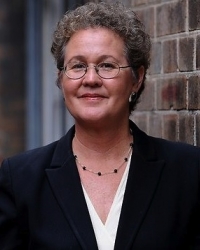
Linda Darling-Hammond is Charles E. Ducommun Professor of Education, a position she has held since she joined the Stanford faculty in 1998. Her work at Stanford began as the Faculty Sponsor for the Stanford Teacher Education Program (STEP) where she teamed up with other Stanford faculty to redesign the program, which is now widely cited as an exemplar, nationally and internationally. She has taught in the STEP program, as well as the GSE’s programs in Curriculum and Teacher Education and Administration and Policy Analysis. She twice received the GSE’s Outstanding Teaching Award.
While at Stanford, she founded the School Redesign Network, which has worked with schools and districts across the country to transform schools so that they can offer personalized, authentic, and equitable learning opportunities supporting 21 st century skills. In 2001, she worked with other faculty, graduate students, and alumni to found the East Palo Alto High School (now East Palo Alto Academy), which has applied these and other ideas emerging from work in the GSE to transform high school graduation and college-going rates for young people in that community. Darling-Hammond is currently the faculty director of the Stanford Center for Opportunity Policy in Education, which conducts research and policy analysis on issues affecting educational equity and opportunity.
Darling-Hammond began her career as a public high school teacher and has been deeply engaged throughout her career with research and policy on a wide range of issues affecting teaching, schooling, and equity and access for traditionally underserved students. She co-founded a preschool and day care center as well as a public high school; worked with countless schools and districts on studying, developing, and scaling up new systems of practice to improve teaching and learning; and has advised many state and national leaders on creating policies to support school and teaching quality, student and teacher assessment practices, and educational equity.
As executive director of the National Commission on Teaching and America’s Future, she led the development of the 1996 report, What Matters Most: Teaching for America’s Future , which was named one of the most influential policy reports affecting U.S. education in that decade. In 2006, Darling-Hammond was named one of the nation’s ten most influential people affecting educational policy; and, in 2008, she served as the leader of President Barack Obama’s education policy transition team. She currently serves as chair of the California Teacher Credentialing Commission.
Darling-Hammond is past president of the American Educational Research Association, a two-term member of the National Board for Professional Teaching Standards, and a member of the American Association of Arts and Sciences, as well as the National Academy of Education. Among her more than 400 publications, is The Flat World and Education: How America’s Commitment to Equity will Determine our Future, which received the 2012 Grawemeyer Award.
Linda and her husband, Allen Hammond, are the parents of three adult children, including one who is currently earning her doctoral degree in the Stanford Graduate School of Education. She bikes to and from work from their home on the Stanford campus.
Commencement coverage
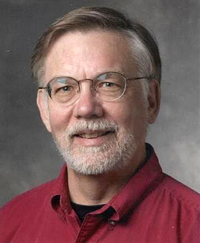
Edward H. Haertel joined the Stanford faculty as an Assistant Professor of Education in 1980, after completing his Ph.D. at the University of Chicago and teaching for one year at the University of Illinois at Chicago Circle. He has remained at Stanford ever since. He served from 2005 to 2011 as the School’s Associate Dean for Faculty Affairs, and in 2008 was named as the first Jacks Family Professor of Education. Throughout his career, Dr. Haertel has been concerned with appropriate uses and valid interpretations of educational test scores. His research and teaching have spanned both educational policy and statistical methods in educational testing. Much of his work has examined different ways of using tests to evaluate teachers, schools, and educational programs. Among other topics, he has conducted research on new statistical methods for examining test data, on standard setting and standards-based score interpretations like “Basic” or “Proficient,” on the accuracy of test-based accountability scores for schools and teachers, and on methods for describing and comparing score gaps and trends across different tests. For many years, he has advised the California Department of Education on the design and maintenance of the state’s school accountability system. Recently, he has written about the use of so-called “value-added models” (using students’ test scores to evaluate their teachers or schools).
Professor Haertel is a past Fellow of the Center for Advanced Study in the Behavioral Sciences, a past president of the National Council on Measurement in Education (NCME), past vice-president of the National Academy of Education, and chair of the National Research Council’s Board on Testing and Assessment. Among other recognitions, he is a recipient of the California Educational Research Association’s Lifetime Achievement Award, the NCME’s Award for Career Contributions to Educational Measurement, and the American Educational Research Association’s Palmer O. Johnson Award, E. F. Lindquist Award, and Robert L. Linn Distinguished Address Award.
Ed and his partner Drew Oman live in Palo Alto. They are now both moving into retirement and looking forward to more leisure time together.
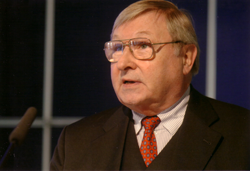
Hans N. Weiler joined the Stanford faculty as an Assistant Professor of Education and Political Science in 1965 after completing doctoral work at the Universities of London and Freiburg. In the School of Education, he helped build the International Development Education program (SIDEC, now ICE) where research and graduate training focused on the role of education in development. His own early research and writings dealt with the relations between education and politics in sub-Saharan Africa and with the politics of international cooperation in educational development – an interest that earned him the Directorship of UNESCO’s International Institute for Educational Planning (IIEP) in Paris and a variety of assignments with the World Bank, USAID, the Ford Foundation, and the African Development Bank. At Stanford, he also served as Associate Dean for Academic Affairs in the School of Education, the head of the School’s research training program for Francophone Africa, a member of the Academic Senate, a University Fellow and Director of the Center for European Studies. He was a Fellow at the Center for Advanced Study in the Behavioral Sciences and the recipient of research grants from numerous foundations in the U.S., Japan, and Europe. With the assistance of the World Bank, he directed a multi-year cooperative program between Stanford and the Government of Malaysia for the professional enhancement of Malaysia’s senior administrators in education.
Having later turned his scholarly interests to the politics of educational reform in Europe, the fall of the Berlin Wall in 1989 led to his involvement in the reconstruction of higher education in Eastern Germany and to his appointment as the first Rektor (president) of Viadrina European University at Frankfurt (Oder) on the German-Polish border – a commitment which both the Polish and the German government later honored by awarding him their respective Order of Merit. Since his retirement from the Viadrina in 1999, Hans Weiler was instrumental in the founding of the Hertie School of Governance in Berlin, the first privately funded public policy school in Germany. He continues to be active as an international consultant in higher education and a member of numerous advisory groups on university reform. He and his wife Frauke live on the Stanford campus and in Berlin.
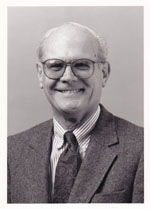
Professor Bridges joined the Graduate School of Education faculty in 1974 and retired on December 31, 1999. Prior to joining the Stanford Faculty, he spent eight years in public education first as a high school English teacher, then successively as a Dean of Boys, Assistant High School Principal, and High School Principal. He pursued a Ph.D. at The University of Chicago. Following graduation, he served a brief period at Ohio State University and then held professorships at Washington University (St. Louis), The University of Chicago where he also served as Chair of the Committee on Administration and Director of the Midwest Administration Center, and finally The University of California, Santa Barbara.
During his professional career, he has received numerous awards. While serving as high school principal, he was chosen as one of the Three Outstanding Men of Indiana for his transformation of a high school located in the northwest corner of Indiana. During his career in higher education, he served as a Vice-President of the American Educational Research Association. While at Stanford he twice received the Excellence in Teaching Award. Late in his career, he received the Roald F. Campbell Lifetime Achievement Award and a citation from his Alma Mater, the University of Missouri, for his contributions to the field of education. In 2010, the University Council for Educational Administration established an annual award in his name in recognition of his contributions to the preparation and development of school leaders.
His best known work is the creation of a model for leadership training called problem-based learning. He developed and field-tested this approach to training prospective principals while at Stanford. Along with one of his former students, Dr. Philip Hallinger, they have conducted training workshops on the use of problem-based learning in higher education for more than 700 professors from ten different disciplines and fifteen countries. A version of this approach has served as the core instructional strategy in the New York City Public Schools Leadership Academy formerly directed by one of his former students, Dr. Sandy Stein. This approach has also been used in the product design program in mechanical engineering at Stanford.
Since retiring Professor Bridges has continued to write, mentor his students, watch over his four grandchildren, and spend precious time with former colleagues. He has repotted himself and devoted his research and writing to investing and retirement planning. He also managed to publish an article on administrator preparation and co-author a third book on problem-based learning.
He lives with his wife, Marjorie, in an historical home on the Stanford Campus. They have been married nearly 58 years. At the celebration of their 50 th wedding anniversary she said, “We not only love one another; we like each other.” In public and private, he refers to her as the top lottery pick in 1954.
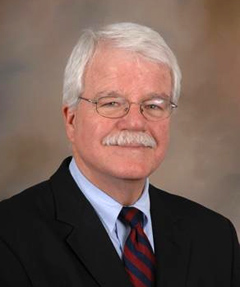
Congressman George Miller is the Senior Democrat of the House Education and Workforce Committee and chairman of the Democratic Policy Committee, a leadership position. George is a leading advocate in Congress on education, labor, the economy, and the environment. He has represented the 7th District of California in the East Bay of San Francisco since 1975. His district includes portions of Contra Costa and Solano counties, including Richmond, Concord, Martinez, Pittsburg, Benicia, Vallejo and Vacaville. He is a life-long Democrat and Californian. George is a member of the Democratic Leadership, serving at House Minority Leader Nancy Pelosi's direction as chairman of the House Democratic Policy Committee. In that role he helps Democrats develop and articulate a wide range of policies to benefit all Americans. His priorities in the 112th Congress are to continue to create jobs and grow the economy, reauthorize the federal k-12 education law, and ensure that the historic health care reform law that he co-wrote is fully implemented. Read more...